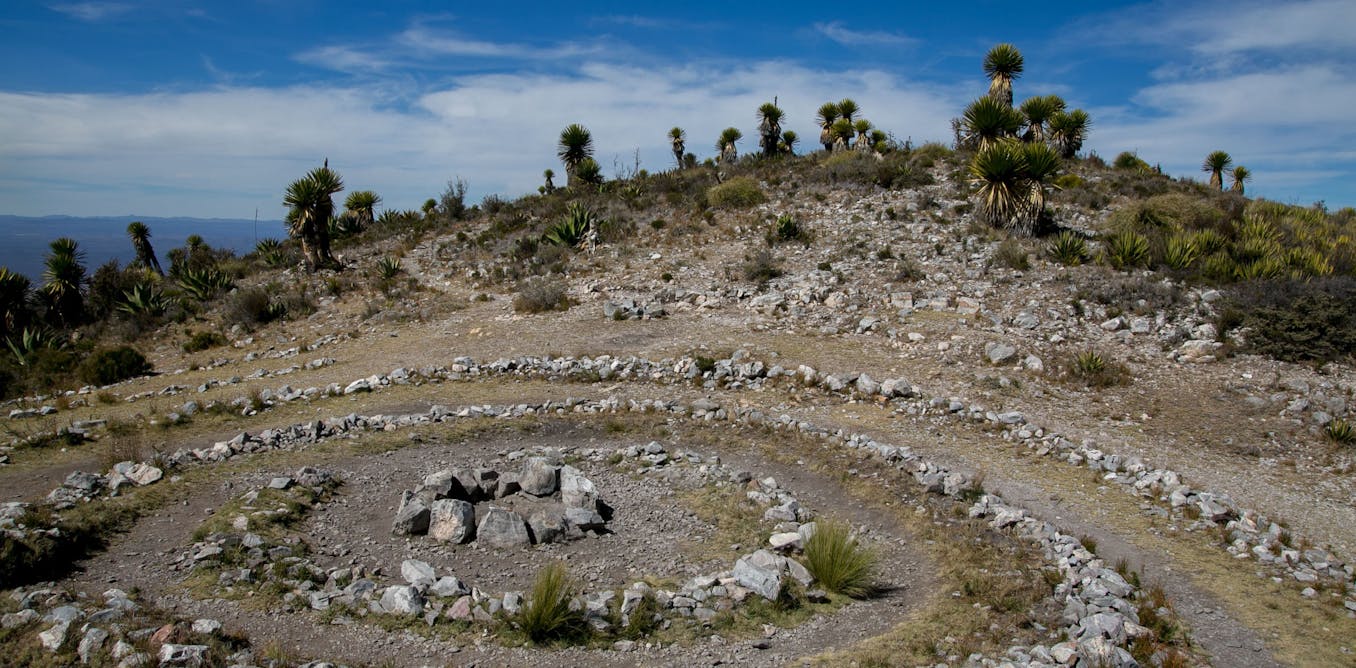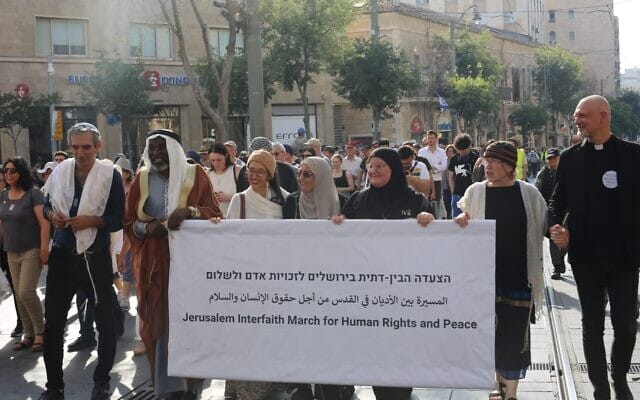Faith in Diversity Newsletter - 6.21.24 - DEI Criminal

Today is the free monthly newsletter for all subscribers. Starting in July, the free newsletter will come on the first Friday of each month. Today’s newsletter begins a special series. These are the beginnings of a book proposal - so I have you to thank for supporting me in making progress on this!
I was a pastor’s kid, so you know what that means: I was a bit of a bad boy. I have some wild stories. One time, I fell asleep in the pew during church. I was five. I got gum in my hair. Mom took me home to wash it out. We lived across the street.
So maybe I wasn’t the bad boy. But I was that small town church kid. My earliest memories are living across the street from the church in the pastorium for the pastor’s family. This was small-town Indiana, so small that I later taught at a high school in Florida with a higher population than that town. I went back to visit with my kids a couple years ago and it is still that tiny, and still sitting on one of its few street corners, Alliance Bible Church. It was in a small Sunday School classroom there, in that small church, in small town Indiana, that I learned my first Bible memory verse. But it was a planet-sized verse, one you might have memorized or heard of, John 3:16: For God so loved the World that he gave his only begotten Son, that whosoever believeth in him shall not perish, but have eternal life.
As a 5 year old, I think what clicked in this verse was: Love. Or maybe a bit more: God loves the world. That was a big idea for a small town kid to comprehend. And I don’t know that I have ever departed from that belief, even as my faith has evolved over the years. To look at Jesus, at his life, that love, is to look at God’s love. And that love is not small, but big enough for a whole world.
Though, at the time, I could not see much beyond my backyard, I got a look out on some views far outside my little Indiana world. There were Uncle Bob and Aunt Ellen, missionaries in Kenya, with my cousins in tow, who I would see on their furloughs to the United States. My Dad being a Christian and Missionary Alliance pastor, we welcomed missionaries into our home to stay with us and tell us about loving God’s people all around the world. While my views of this kind of missionary work has become more complicated, there is no doubt a seed was planted then by my family: God loves all the people of the world. I did not have the words for it yet, but I had begun to learn the first letter of DEI, and more than that, I was learning about sacred diversity.
I had the honor of preaching last March in the 600 year old chapel of Mansfeld Castle in Germany, overlooking the town where Martin Luther grew up, one he visited and probably had in mind when he wrote, A Mighty Fortress is Our God. The service included Interfaith and Secular readings, chosen by students both religious and non-religious, all campus ministry members. It was our very own UNF campus ministry (led by Pastor Sarah Locke) which fosters such diversity that we had Muslim, Jewish, Agnostic, and Spiritual-but-not-religious students alongside Christians. I can’t tell you this was always an easy mix of campus ministries - diversity may be sacred but that does not make it easy. But in that moment, something shifted, as we lifted our hearts together, unity in diversity. I shared these words:
In the beginning, the book of Genesis tells us, when God created the heavens and the earth, the spirit hovered over the waters, the vast, roiling, undifferentiated chaos that ancient people understood to be the primordial state of non-being, and then a word says LIGHT and then DARK and land and water and creatures and humans and…order begets a diverse world. The way, the purpose, the order of this world is diversity. Diversity is sacred.
Or in the beginning, a big bang, a singularity of unified energy bursts forth into manifold forms, into light and forces and plasma and matter of all sorts, solid, liquid, star, planet, and life here on Earth, and perhaps elsewhere, in unquantifiably immense difference.
Quantum physics tells us that beneath the diversity of all things and forces, we all, it all, may be something like strings vibrating. A hidden unity, at the bottom, center, ultimate reality of all things, yet expressed above that, at a macro level, unity expressed as a vast variety. If not sacred, diversity is at least inevitable, and expressive of a hidden unity.
In Genesis, this unity in diversity has a name: “And God said that it was good. Very good.”
Another reading that night, from Professor Albus Dumbledore of the Harry Potter books: “Differences of heart and language are nothing at all if our aims are identical and our hearts are open."
And from a book we were all reading together, This Here Flesh, by Cole Arthur Riley: “People talk about God as three distinct people in one. If this is true, it means the whole cosmos is predicated on a diverse and holy community. And if we bear the image of God, that means we bear the image of a multitude. And that to bear the image of God in its fullness, we need each other. Maybe every culture, every household, every community bears that image in a unique way.”
While some seek religious exemptions to DEI, for some of us, there almost seems to be a gospel according to DEI. We certainly can find common ground with our friends of other religions and no religion in valuing diversity.
Diversity is sacred. Diversity is worthy.
I wish there was more consensus on that.
At least we could get everyone to agree diversity is a reality. But what will we do with it?
This question ran through my head on January 31, 2023, when the Governor of Florida announced his intention to eliminate my job. This was 4 months after I was promoted to become the Director of the University of North Florida Interfaith Center, a dream come true, seemingly a job I could do for a good long while. I made it a little more than a year in the position, and by April 2024, the Interfaith Center, a part of UNF’s Office of Diversity and Inclusion, was closed.
Next time: What happens when religion gets caught up in the War on Woke?
Religious Literacy in the News

Though 100 degree temperatures ushered in the unofficial start of summer in my Florida climes weeks ago, the Summer Solstice in the northern hemisphere came yesterday, marking the official beginning of the season. While this may be just another hot day for some of us, in various indigenous cultures across the world, for time immemorial, the solstice has been a sacred occasion. In this article from The Conversation, an excellent source for news and analysis written exclusively by scholarly experts in their fields, Jason Ybarra traces his own lineage to the central plateau of Mexico, where such observances were held. He also notes the North American history, where displacement and repression affected such practices as the Lakota Sun Dance, and contemporary solstice pilgrimages have been held in resistance against the exploitation of natural resources and for protection of sacred lands. Intriguingly, as he notes, “resist” and “solstice” share a Latin root.
Pride Month Highlight

Last month, United Methodist Church (UMC) delegates voted to overturn the denomination’s ban on LGBTQ clergy and same-sex marriages. Time is relative - a simple, quick, and overwhelming vote, 692 to 51, sealed the deal, bringing a culmination, if not an end, to several years of tumult with the UMC, after 50 years of battles over these bans, and a much longer historical (and still winding) road for queer people finding their full humanity recognized in churches. The NPR article is a quick listen, with voices of LGBTQ clergy, while the long-read AP article frames the story in the larger movement of mainline protestant churches from conflict to inclusion.
Interfaith Solidarity

As Gazans continue to suffer, and Israel’s reckless leaders risk war with other militant regimes across the region, many Israelis have been on the streets protesting for an end to the war and return of hostages. I have found the most hope in demonstrations expressing solidarity. Standing Together has brought together Jewish and Palestinian citizens of Israel to dialogue, demonstrate, and protect aid shipments to Gaza threatened by Israeli extremists. They could also be seen protecting Palestinians in Jerusalem on Flag Day, when extremist marchers became violent.
On the same day, a day celebrated by some as a unification day for Jerusalem and grieved by others as a marker of the illegal occupation of East Jerusalem, an Interfaith solidarity group marched in the city, arm in arm, organized by Rabbis for Human Rights and other groups. The hundreds included Jewish, Christian, Muslim, and Druze participants, accompanied by the Jerusalem Youth Choir. It was a gathering acquainted with the horrors of October 7; organizer Avi Dabush survived the attack on her kibbutz, while previous participant Vivian Silver was murdered by Hamas forces. Nevertheless, they are unwavering in their peacemaking, memorializing the words of Silver: “Vivian Silver, may her memory be a blessing, always taught us there is no such thing as a path to peace — peace must be the path.” Her friend, Muslim Palestinian activist Ghadir Hani, encapsulated the hope of the march: “We stand here today praying for an end to the bloodshed, the return of the hostages and for the lives of Gazans to be saved.”
Pop Culture: "Just For Us"
A hilarious and insightful exploration of Jewish life in America, of Orthodox Jewish family dynamics, and a harrowing tale of one Jewish man's odd choice to attend a neo-nazi house meeting, Alex Edelman's "Just for Us", streaming on Max, is worth your time (though, at 90 minutes, breaking it into multiple viewings may be preferable). Edelman deftly explores the intersection of whiteness, privilege, and Ashkenazi Jewish identity, while relating hilarious tales like the time his Dad begrudgingly hosted Christmas for their gentile friend and then had to defend it to his Rabbi. Ultimately a meditation on expansive empathy, you heart will grow as you laugh. Edelman won a special Tony Award this past weekend for the show. If you don't have Max, the interview above is a great primer on the project.
Paid subscribers can visit this newsletter on the website to add comments! I am always interested to hear what you think and discuss further.
For any feedback, reach out to me by email at: faithindiversityproject@gmail.com
Thank you for subscribing and see you next time! ~ Matt


